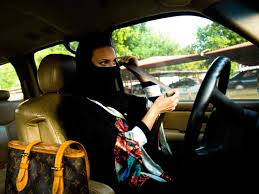 Jeddah, Oct 25: Several Saudi women who applied for driving licenses at Dallah Driving School in Jeddah had their applications rejected on Thursday by traffic officials.
Jeddah, Oct 25: Several Saudi women who applied for driving licenses at Dallah Driving School in Jeddah had their applications rejected on Thursday by traffic officials.
Naila Attar, a Saudi businesswoman, went with two friends to apply for licenses this week at the school. She said it was a futile situation for local women, but that they had some hope that officials would grant them the licenses.
“We have done our homework and studied for the exam. We’ve learned everything there is to know about driving. We actually have licenses from other countries but want the Saudi one too,” she said.
Attar was surprised when she saw other women at the driving school also applying for licenses. “When we walked in, we saw a waiting area for women. We asked the front desk to give us the license applications but they kept asking for our drivers. When we said the applications were for us, they started laughing,” she said.
Saudi women have been going in small groups to apply for licenses throughout the week.
Fatima Moussalli, a businesswoman, was one of the women who applied Wednesday with two friends. “As soon as we walked in, they knew why we were there because other ladies had applied earlier in the week,” she said. “An employee told us that there was no way we could obtain Saudi driving licenses for the time being. He advised us to seek an explanation from the Ministry of Interior,” she said.
Hanaa Humaidan, another Saudi businesswoman who applied, said: “We wanted to apply the legal way because we are a country that respects the law. At the school, an official told us that they would only accept applications once the Ministry of Interior gives the green light,” she said.
“I learned a lot about this issue just by sitting with him for a short while. He also informed us that if we had a driving license from another GCC country, it would be easier for us to get a Saudi one without tests once it is allowed,” she said.
Three women videotaped themselves driving in Jeddah to the driving school to apply for licenses on Oct. 22. In the short video, the women said an official told them that they had not received an order from the Ministry of Interior to obtain licenses.
Um Mohannad was videotaped saying that women are being arrested for not having licenses as opposed to driving illegally, but are refused licenses upon application.






Comments
Add new comment